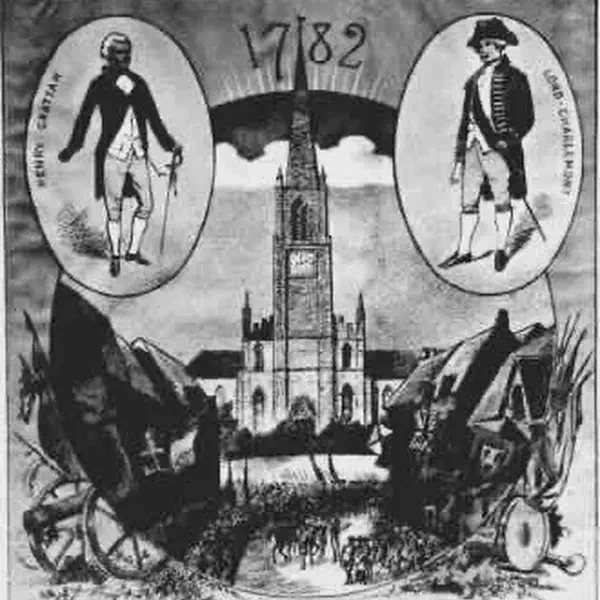
National Volunteer Convention on Parliamentary Reform Begins at the Rotunda in Dublin
November 10, 1783
The National Volunteer Convention on parliamentary reform that began at the Rotunda in Dublin is a historically significant event in Ireland’s political history. This convention took place in the early 1780s and was part of a broader movement for political reform in Ireland.
The National Volunteers were a militia force formed by Irish Protestants who sought greater autonomy and reform in Ireland’s relationship with Britain. The convention at the Rotunda aimed to address political reform issues, including calls for greater Irish self-governance and parliamentary independence.
One of the key outcomes of this movement was the demand for parliamentary reform and greater Irish control over their own affairs. The efforts of the National Volunteers and other reformist movements played a role in the eventual legislative changes that led to the Constitution of 1782 and the relaxation of British control over Irish affairs.
This period of Irish history laid the groundwork for the later struggle for Irish independence and is an important chapter in the country’s path toward self-governance.
The National Volunteers were a significant political and military movement in Ireland during the late 18th century, particularly in the years leading up to the Irish Rebellion of 1798.
Formation: The National Volunteers were formed in 1778 in response to fears of invasion by the French during the American Revolutionary War. They were initially a volunteer militia composed of Irish Protestants who sought to defend Ireland against external threats.
Autonomy and Reform: Over time, the National Volunteers became more than just a defense force. They began to advocate for greater autonomy for Ireland and political reform, including calls for a more independent Irish parliament.
Conventions: The National Volunteers held a series of conventions and meetings to discuss and promote their demands for political and constitutional reform. One of the most notable of these was the Dungannon Convention in 1782.
Constitution of 1782: The efforts of the National Volunteers and other reformist movements contributed to changes in Ireland’s relationship with Britain. In 1782, the British Parliament passed the Constitution of 1782, which granted greater legislative independence to the Irish Parliament and reduced British control over Irish affairs.
Legacy: The National Volunteers played a significant role in shaping the political landscape in Ireland and contributed to the broader struggle for Irish self-governance and independence in the years to come.
While the National Volunteers initially had Protestant membership and were concerned with defense, their demands for reform and political change evolved, and their influence had a lasting impact on Ireland’s political history. The movement represented an important step in the development of Irish nationalism and the fight for self-determination.